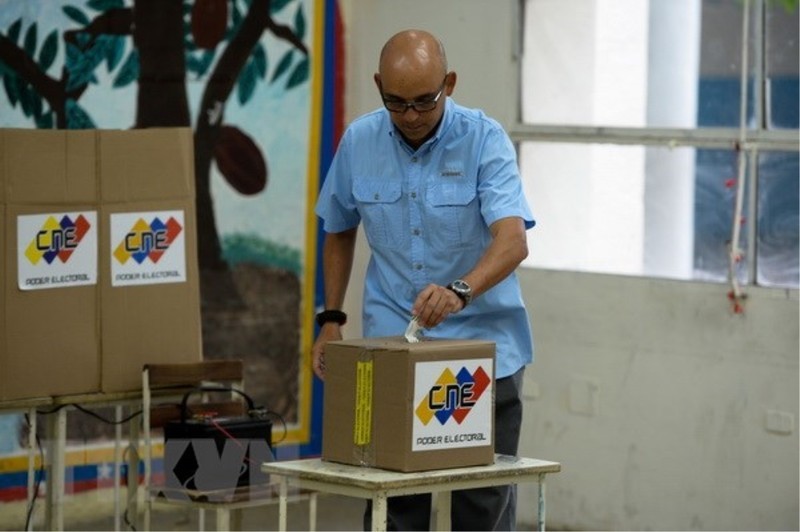Expectations from the Venezuelan elections
About 20 million Venezuelan voters went to the polls to choose the President who will lead the country for the next six years. Venezuelans expect the next president to lead the South American country through challenges and firmly step forward on the path of development.
 |
| Venezuelan voters in the local election for the 2019 - 2025 term. |
The presidential election in Venezuela took place on July 28, with the competition of 10 candidates attracting special attention from the international public.
According to pre-election polls, incumbent President Nicolas Maduro, representative of the United Socialist Party of Venezuela (PSUV), is currently the leading candidate. Thanks to his experience and achievements during his two terms leading the country, President Maduro has certain advantages in the race.
According to the latest survey by the Center for Measurement and Interpretation of Statistical Data (CMIDE), 56.8% of respondents confirmed that they will vote for Maduro, while 76% believe he will be re-elected.
Meanwhile, veteran diplomat Edmundo Gonzalez is emerging as the main opposition candidate.
Analysts say that the winner of the election will take over a Venezuela with bright prospects. In recent years, Venezuela's economy has recorded positive signals, gained basic control of hyperinflation, and maintained a fairly good growth momentum, which are mainly attributed to the recovery of the oil and gas industry and domestic production.
President Maduro affirmed that Venezuela's inflation rate has showed down to its lowest level in 20 years, while recording GDP growth of more than 7% in the first quarter of this year. The International Monetary Fund (IMF) forecasts that Venezuela's GDP will grow by 4% in 2024.
In addition, the country has been making continuous efforts to gradually break the sanctions and embargo.
After many years of tension, relations between Venezuela and the US have seen positive changes. Since October 2023, the White House has eased sanctions on Venezuela's oil industry.
Although sanctions were re-imposed in April 2024, the two sides have maintained dialogue.
In early July 2024, the two countries held an online dialogue, reaching agreements on working together to improve relations and maintain constructive and mutually respectful exchanges.
This is considered the latest step to reset the bilateral relationship that has been “unsmooth” for many years.
Along with restarting relations with the US, Venezuela is also ready to seek a new future in its relations with Western countries.
Since last year, relations between Venezuela and the European Union (EU) have gradually improved.
However, in addition to inheriting the achievements of national development, the next President will also face many challenges in leading the country firmly on the path of development.
Although tensions with the US have been somewhat eased, the process of breaking the ice in bilateral relations remains thorny.
Venezuela continues to be negatively affected by economic blockade and embargo measures. The Bolivarian Alliance for the Peoples of Our America – Peoples' Trade Treaty (ALBA-TCP) estimates that Venezuela has suffered economic damage worth hundreds of billions of dollars due to the sanctions imposed by Western countries since 2015.
In addition, despite possessing the world's leading gas reserves, sanctions that have lasted for many years have severely restricted foreign investment in Venezuela's important oil and gas industry, thus preventing the country from making the most of its rich resources.
In that context, observers believe that the next president of Venezuela will face the challenge of developing the national oil and gas industry.
Despite being surrounded by difficulties, Venezuela has gained many achievements in economic and social development in recent years. This is an important foundation for the next president to lead the country forward, meeting the expectations of the people of the South American country.
NDO






READER COMMENTS